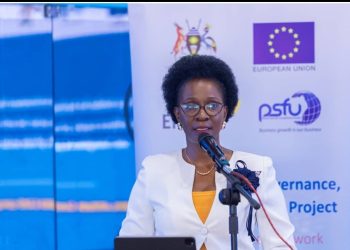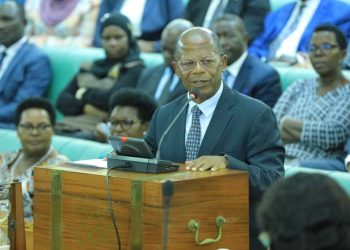President Yoweri Museveni has promised that his government will put aside over sh100b to support youthful co-operators across the country.
“Through the new initiative Emyooga, we are prepared to support any youth group, SACCOS or co-operators who are embracing partnerships to ensure that they escape from poverty,” he said in a message which was delivered by Rita Namuwenge, the chairperson of the presidential initiative on job and wealth creation.
The President expects the Emyooga initiative to attain at least two of the Sustainable Development Goals; SDG1 – ending poverty and SDG11 – sustainable cities and communities.
Namuwenge delivered the presidential pledge while addressing local council chairpersons from Mbale town at Mbale municipal council chambers on Monday.
Before reading the President’s speech, Namuwenge clarified that the move to support the youthful co-operators across the country had nothing to do with politics.
“This is not a political decision. It is a move to ensure that we encourage young co-operators to work together so as to reach the first sustainable development goal to end poverty. We are not taking any political decisions now,” Namuwenge said while delivering Museveni’s speech.
“It is a constitutional and national duty for the President to empower the population, most especially the young ones, who are the future of this country,” she said, referring to China, South Africa and other countries where the empowerment of youths has paid off “immensely”.
While there have been several government initiatives tailored towards fighting poverty, which has not had the desired impact, Namuwenge emphasised that the President had started Emyooga as a new initiative which will implement financial empowerment programmes while taking into account the challenges which the previous programmes ran into.
Such government programmes include the Northern Uganda Social Action Fund (NUSAF), Operation Wealth Creation, (OWC) and Youth Livelihood Programme (YLP).
“The difference with this initiative ( Emyooga ) is that it is not the districts or municipalities controlling the funds but the beneficiaries themselves receive the money and use it accordingly through management committees,” Namuwenge said.
































































